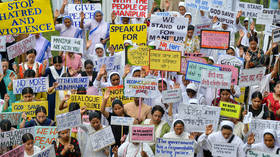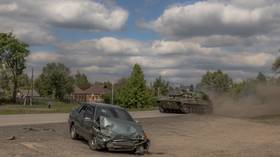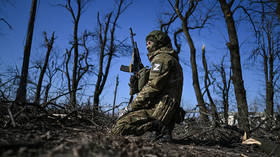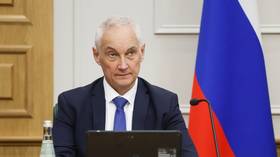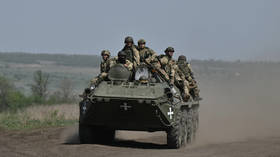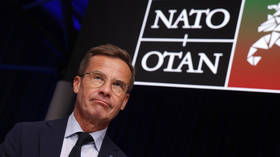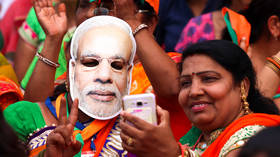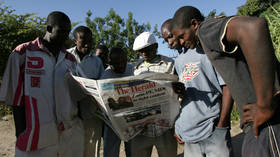Modi faces no-confidence test over Manipur violence
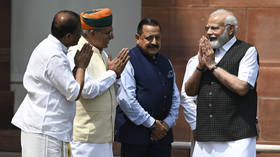
Indian opposition parties put forward a motion of no confidence against the Narendra Modi-led government on Wednesday, amid mounting pressure over the violence in Manipur. The opposition is demanding a statement in parliament from the prime minister on the grave humanitarian crisis in the remote north-eastern state.
Om Birla, the speaker of India’s lower house of parliament, the Lok Sabha, accepted the no-confidence motion presented by Congress Party member Gaurav Gogoi on behalf of the recently formed INDIA opposition alliance. The regional Bharat Rashtra Samithi (BRS) party also put forward a separate motion against the government.
The move is unlikely to have an impact on government stability as the Modi-led National Democratic Alliance (NDA), which unites 38 parties, enjoys a majority of 331 in the 543-member Lok Sabha. However, it may force the Indian leader to issue a formal statement on the situation in Manipur before lawmakers — something that Modi has so far not done, despite pressure from the opposition and appeals from the public.
The opposition INDIA alliance has 144 Lok Sabha members. The BRS, which is not part of the grouping, has just nine members. Lok Sabha rules stipulate that a minimum of 50 MPs have to accept the motion for a vote of no confidence. That would prompt the speaker to announce a date and time for the discussion, which has to be allotted within 10 days.
Despite the outcome of the no-confidence move appearing highly predictable, it is aimed at seeking answers from Modi on various issues, including the violence in Manipur. The opposition has been stalling proceedings in the ongoing monsoon session of parliament over the ethnic crisis in Manipur, and both houses were adjourned several times on Wednesday. Amit Shah, India's Home Minister, earlier conceded to the opposition’s demands and said the government would reply to the debate on the Manipur crisis.
Back in 2018, the Modi-led government comfortably won a vote of no confidence put forward by the Telugu Desam Party of N. Chandrababu Naidu, and backed by numerous opposition parties. At the time, 325 MPs voted against the motion. On Wednesday, a 2019 video of Modi “predicting” the latest development went viral. In the clip, the prime minister is heard telling parliament: “I want to offer my best wishes... prepare so much that you get a chance to bring a no-confidence [motion] again in 2023.”
Throughout Indian history, former prime ministers such as Morarji Desai, Charan Singh, V.P. Singh, and Atal Bihari Vajpayee have all seen their governments fall due to no-confidence motions.
